Phil Hammond and Tony Gardner revive Struck Off And Die for Radio 4
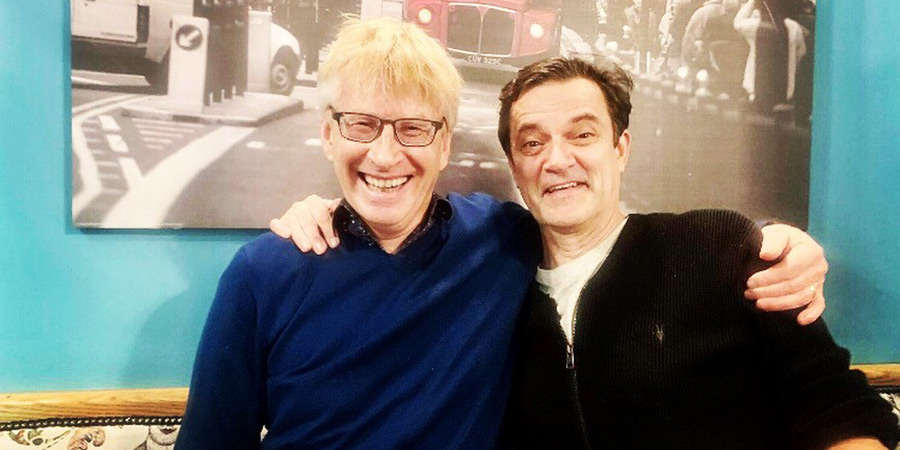
- Dr Phil Hammond and Tony Gardner are reuniting to bring their medical comedy double act Struck Off And Die back to Radio 4 for the first time in a quarter of a century
- The pair's new five-part series, Doctor On Hold, will explore the current state of UK healthcare
- Hammond will also be paying tribute to his friend, the late Dr Michael Mosley, as part of The Ins And Outs Of Pleasure, one of two shows he's taking to the Edinburgh Fringe next month
Dr Phil Hammond and Tony Gardner are reviving their medical comedy double act, Struck Off And Die, after 25 years, for a new Radio 4 series next year.
The pair met while junior doctors at Frenchay Hospital in Bristol in the late 1980s, finding fame at the Edinburgh Fringe before making three Writers Guild-winning series for Radio 4 between 1993 and 2000.
They split acrimoniously after Lead Balloon and Fresh Meat star Gardner began enjoying success as an actor, while Hammond has continued to practice medicine, perform on stage, radio and television, and pen Private Eye's Medicine Balls column under the pseudonym M.D..
However, the pair are now reunited and will write and star in Doctor On Hold in 2025, currently set to be five 15-minute episodes about the current state of the UK's healthcare.
"It will start with a very frustrated patient trying to get through to their GP and we can do the ringtone for 14 of the 15 minutes, so we'll only need a minute of material," Hammond, a former GP, told British Comedy Guide. "Because that's the key frustration at the moment, people being unable to get through to their doctor. It'll be topical and funny."
Struck Off And Die began their career advocating for the rights of junior doctors. And the recent bitter stand-off over pay and conditions between the profession and the outgoing Conservative Government means that their series can't be a cosy exercise in nostalgia.
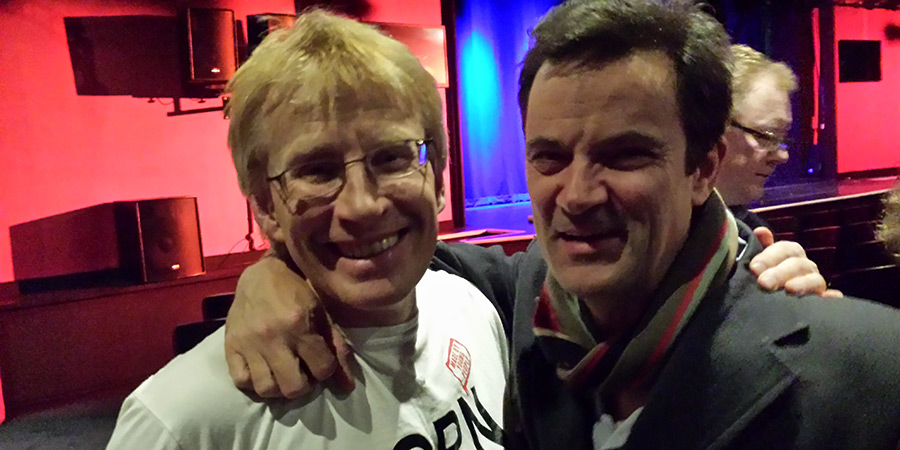
"The commissioning notes said that 'we really admire Tony as a performer' and 'we really admire Phil's writing at Private Eye and we want some of that political spike in it'," Hammond says. "I've only ever been able to do comedy with a message but Tony will make sure it's funny. Tony's very good at picking me up and saying that you're just ranting now, that's not comedy. We're very good at criticising each other's work."
The pair fell out after Gardner landed his breakthrough role on CITV comedy My Parents Are Aliens, as "all double acts fall out at some stage" Hammond suggests.
"We felt he couldn't do Struck Off And Die doctory things anymore. But I carried on a solo career doing medical stuff, probably including stuff that we'd written together, I couldn't remember precisely what. So I was using some gags that he'd probably written and not really crediting or paying him for them because I couldn't work out how to do it. He didn't ask me explicitly and I suspect he thought 'that's a bit rich, Phil going off doing this'.
"And it was only when Tony became very successful that we thought, this is ridiculous. My wife Jo said to me: 'If you die, would you want Tony to come to the funeral?' And I thought isn't it stupid, that you have this little huff and someone who was your best mate, who you've laughed with more than anyone in your life, and you've gone separate ways?
"So we've met up together, had a few beers, and met up with David Spicer (Polyoaks, Hennikay), who used to be our comedy producer. Now we're good mates again. It's a lesson I'd share with anyone. If you've let a really good friendship go, rekindle it, you don't have to work together again. Even if our show is shite, and I don't think it will be, it'll be worth it for the friendship."
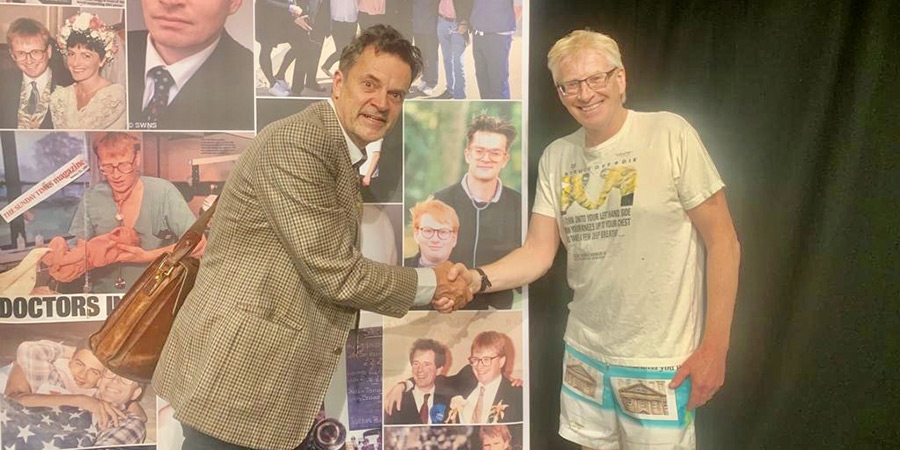
Currently available on digital audio, Hammond is proud of Struck Off And Die's existing radio series, but admits that some of the material may offend modern sensibilities.
"Some of it's dated," he concedes. "What you found funny in your twenties isn't the same as what you find funny now. But it's all there. I didn't know that I'd signed my rights away, so they stuck it up without me knowing. There's the famous story of the dead baby's head falling off, which I'd hoped had been buried and we'd never hear of again.
"I remember talking to [former obstetrician-turned-musical comedian and comedy writer] Adam Kay and he said that if people ever got hold of some of his Amateur Transplants [Kay's former double act with Suman Biswas] material, he'd have to hide for the rest of his life. But you can't really shy away from the stuff that you thought was funny when you were younger. It was shocking and deliberately provocative and a little bit unkind.
"My humour now is kinder and perhaps a little less funny for it. But I can't do the level of spikiness that say, Frankie Boyle or Jimmy Carr do, and still function as a compassionate doctor. So I perhaps have some regrets but some of it is very funny and we took the best bits and put them in [satirical Radio 4 show] How I Ruined Medicine, which is on BBC Sounds. And a lot of Struck Off features a lot of Tony because he was just brilliant at delivering the funny lines."
He and Gardner are tentatively talking about a return to performing live together, "a few random gigs in Bristol or Colchester perhaps". And Hammond isn't ruling out them returning to the Edinburgh Fringe in the future either.
Gardner has just made his Shakespeare debut in the RSC's recent production of Love's Labour's Lost, playing Holofernes, while Hammond is currently working on a documentary for Channel 5 about concerns raised about the Lucy Letby trial.
But he's also returning to the Fringe next month with two shows, Fifty Minutes To Save The NHS, in which he shares the bill with GP and addiction specialist Clare Gerada, and a solo hour, The Ins And Outs Of Pleasure.
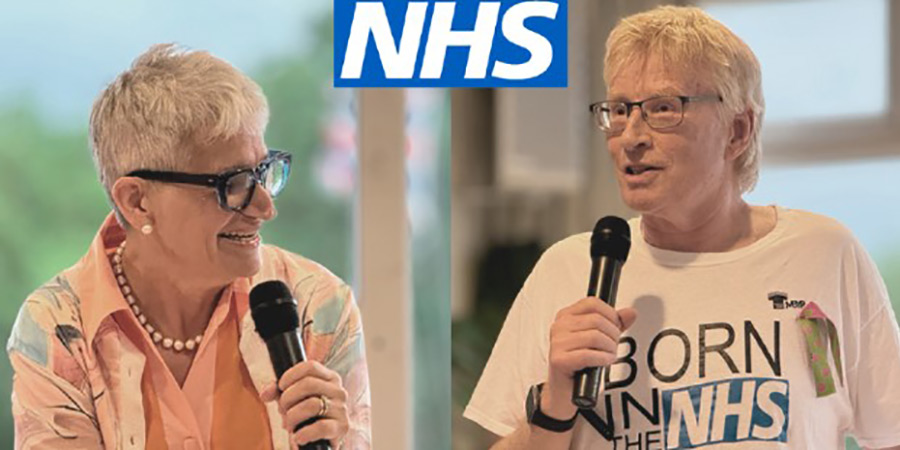
"I actually take pleasure very seriously" the Australian-born comic maintains. "I like doing shows about things that the British don't talk about. I've done sex and death and depression and stuff like that and it all comes under the umbrella of pleasure.
"When I was a medical student, we only had two mentions of pleasure in the whole curriculum but how you pleasure yourself, in the broadest sense, is fundamental to your health and happiness, the quality and longevity of your life."
As the show title suggests, there's a bit of talk about "instant pleasures, cocaine, sex, food etc", including the results of experiments with rats on coke. But also reflections on why Hammond's father, great uncle and great grandfather all took their own lives, "why the men in my family bowed out early and left the women to pick up the pieces".
"So I'm exploring why women live longer than men. They're more risk-averse than men and the countries that had women as leaders during the coronavirus pandemic did better. But they're also better at forming warm relationships."
He ventures that "human beings need complex pleasures. Ones that combine pleasure, pain and purpose. Whether that's running a marathon or in my life, breaking big stories in Private Eye. Doing this thing about the Lucy Letby trial is painful, difficult and it's high risk but I get a certain pleasure in the truth coming out. A lot of us choose pleasures that involve a lot of stress.
"I also talk a bit about the [recently passed] Dr Michael Mosley because I did a lot of stuff with him, he was an interesting self-experimenter who chose a lot of pain in the work he did and sadly, took one risk too far at the very end."
Hammond met Gerada making his Doctor, Doctor series for Radio 4 last year, which also featured him interviewing psychiatrist-turned-stand-up Benji Waterhouse, formerly known as Benji Waterstones on the comedy circuit.
"At a time of industrial action, when understandably everything's very negative, I was trying to find eight inspiring doctors who still enjoy their jobs" he explains. "And Clare was great and funnier than I thought." She suggested they do a podcast together, but being already contracted to the BBC, Hammond advised they do a Fringe run instead. "As a dame, I assumed she'd want me to to do a panto ... But to my surprise, she said 'yes'.
"The straight person, funny person dynamic is working really well and, interestingly, selling really well as people are interested in the state of the NHS. We'd originally planned for doing it pre-election, assuming it would be in October, November. But because it came early it's made a lot simpler as we haven't had to read all of the parties' manifestos."
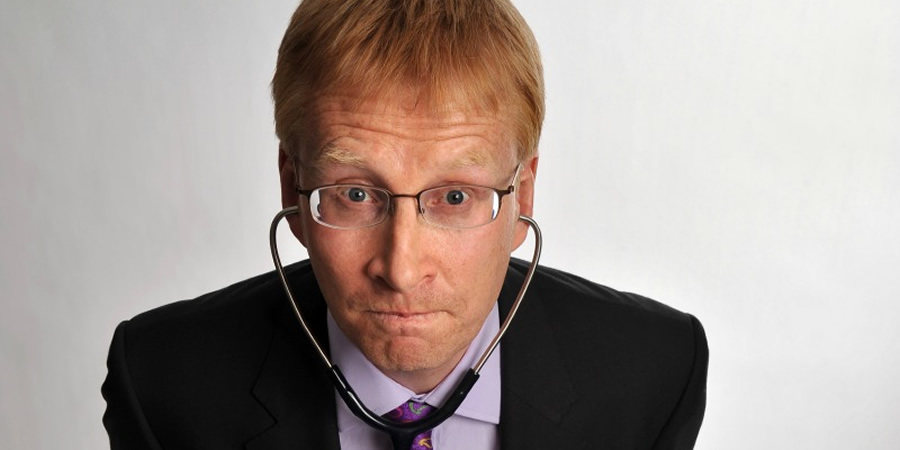
Incoming health secretary Wes Streeting has "helpfully said the NHS is broken and [chancellor] Rachel Reeves has even more helpfully said that there's no money to fix it and they're going to do a review, a commission for social care and cross party agreement and that just kicks everything into touch for five years. It's very clever," Hammond says.
Where Labour's policy chimes with Fifty Minutes To Save The NHS, he suggests, is the emphasis on prevention rather than cure, a "very strong theme in our show".
"Rather than pulling bodies out of the river of illness, we need to wander upstream and stop them falling in, meaning you have to properly tackle poverty and inequality."
Plenty of things have changed since Hammond became a doctor and plenty haven't.
"When Tony and I began Struck Off And Die we were really angry junior doctors, railing about our appalling working conditions. And that isn't any different.
"But the junior doctors are more organised now and more militant. I have sympathy for their cause but I also have sympathy for everyone else's cause. If you're going to restore the pay of doctors to 2008 levels, you'll have to do that with nurses, care workers, physios and everyone else. And we can't afford to do that. So it's a really interesting battle and I don't know how it's going to end.
"Streeting has said he wants to see the healthcare sector as a wealth creation service, not a drain on the Treasury. The argument is that if you cut waiting lists and get people back to work quicker, that boosts the economy and pays for itself. I think that's a clever move too."
Struck Off And Die

All three series of Phil Hammond and Tony Gardner's award-winning comedy show exploding the myths of medicine.
Broadcaster Dr Phil Hammond and actor Tony Gardner are best known for their respective roles in Trust Me, I'm A Doctor and Fresh Meat. But in the 1990s, then junior doctors, they made their names as the comedy double-act Struck Off And Die. A huge hit at the Edinburgh Fringe, the show transferred to radio in 1993, winning both a Writer's Guild and a Sony Award. Mixing dark, irreverent jokes, sardonic sketches and improvised interviews, it demystified the mysterious workings of the medical profession - and 30 years on, it remains as hilarious and relevant as when it was first broadcast.
Series 1 sees the two doctors bringing their scalpel-sharp wit to bear on public and private health care, exposing the plight of the NHS; debunking the widespread myth that 'doctor knows best' and giving us their insiders' view of topics including surgeons, GPs, nurses, and birth and death.
In Series 2, they take a four-part satirical look at Shakespeare's 'Ages of Man', examining the important role doctors play in every stage of our lives. Together, they give us the lowdown on childhood, reveal everything we need to know about sex, consider marriage and the menopause and tell the unexpurgated truth about old age.
And in Series 3, Struck Off And Die's Family Health Companion, Drs Hammond and Gardner tackle issues such as stress, embarrassing sexual problems, the doctor-patient relationship, medical politics and medical training. Plus, there's a speculative probe into the medicine of the future - including doctorless surgeries, do-it-yourself operations and the virtual-reality hospital...
Also included are excerpts from Radio 4's Edinburgh 90, featuring the Struck Off And Die duo entertaining the 1990 Fringe Festival audience with their anarchic insights.
First released: Thursday 29th September 2022
- Distributor: BBC Digital Audio
- Minutes: 375
BCG may earn commission on sales generated through the links above.
